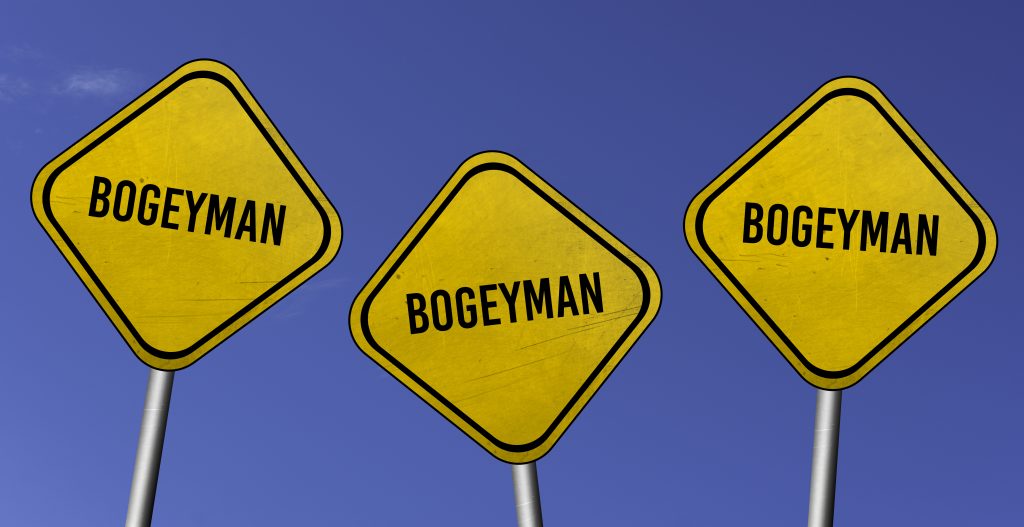“To the extent there is a problem involving patents subject to licensing commitments, the DOJ, USPTO and NIST should avoid relying on vague and ill-defined notions like ‘hold-up’ and, instead, clearly articulate the problem that needs addressing.”
 In Part II of this series, we considered the language of a specific licensing commitment made to European Telecommunications Standards Institute (ETSI) and the prevailing law relating thereto. In this Part III, we consider the 2021 Draft Policy Statement with a particular view to highlighting its inconsistencies with the ETSI framework and the inapplicability of the hold-up narrative to the situation involving an individual United States patent.
In Part II of this series, we considered the language of a specific licensing commitment made to European Telecommunications Standards Institute (ETSI) and the prevailing law relating thereto. In this Part III, we consider the 2021 Draft Policy Statement with a particular view to highlighting its inconsistencies with the ETSI framework and the inapplicability of the hold-up narrative to the situation involving an individual United States patent.
December 6, 2021, Draft Policy Statement
Despite its purported purpose of providing the agencies’ views on “remedies for the infringement of standards-essential patents (or SEPs) that are subject to a RAND and/or F/RAND licensing commitment”, the 2021 Draft Policy Statement does not take a clear position on this issue, instead merely stating the following (some might say “the obvious”):
In the Agencies’ view, courts and other neutral decision makers in their discretion should continue to consider all relevant facts, including the F/RAND commitment and the conduct of the parties during bilateral licensing negotiations, when making remedy determinations involving standards-essential patents. A balanced, fact-based analysis will facilitate and help to preserve competition and incentives for innovation and continued participation in voluntary, consensus-based standards-setting activity.
Along the way to getting to this conclusion, however, the agencies make several unhelpful statements that are not supported by the language of the ETSI licensing commitment, patent policy, or any related legal pronouncements related thereto and, in doing so, encourages hold-out and the placing of undue burdens on patent holders.
Unsupported Statements
As a first example, the 2021 Draft Policy Statement makes the following statement regarding licensing commitments (emphasis added):
By contributing… and voluntarily making a F/RAND licensing commitment under the SDO’s policies, a patent holder indicates that it is willing to license that technology for uses implementing the standard and that it will not exercise any market power obtained through standardization.
The ETSI licensing commitment, Intellectual Property Rights (IPR) Policy nor Guide on IPRs, however, are all silent with respect to “not exercis[ing] any market power obtained through standardization”. The 2021 Draft Policy Statement further characterizes patent owners seeking to obtain “higher compensation for SEPs than they would have been able to negotiate prior to standardization…” as engaging in “[o]pportunistic conduct” despite any agreement or requirement that standard related patents be priced on an ex-ante basis, or that remedies for infringement in the absence of a license be somehow limited (unless, as explained in Part II, your name is Motorola or Google).
Most troublingly, the 2021 Draft Policy Statement states, without any support, that “a potential licensee should not be deemed unwilling to take a F/RAND license… if it reserves the right to challenge the validity, enforceability or essentiality of the standards-essential patent in the context of an arbitration or F/RAND determination; or if it reserves the right to challenge the validity or essentiality of a patent after agreeing to a license” (emphasis added). As explained in Part II, stating that a potential licensee should not be deemed unwilling for challenging, or reserving the right to challenge, essentiality is inconsistent with the language of the licensing commitment to ETSI on its face, and effectively requires patent holders to bear a burden of establishing essentiality, despite contrary rulings of Federal District Courts and the ITC. Even the wording used by the agencies itself is self-conflicting and nonsensical (“reserves the right to challenge the… essentiality of the standards-essential patent”). As we have written about here, such language wrongfully assumes that all patents for which a licensing commitment has been submitted are to be considered essential for purposes creating an obligation on the patent holder to licensing on FRAND, but not for purposes of whether or not an implementer needs a license. As was noted in Part II, the ETSI licensing commitment, IPR Policy and Guide on IPRs are also silent with respect to implementers having right to challenge validity either before or after agreeing to a license.
Showing a significant misunderstanding of F/RAND licensing and the judicial process, the agencies further “encourage the parties to resolve contested issues by agreeing to seek alternative dispute resolution or a judicial resolution of F/RAND-related disputes in a mutually agreeable jurisdiction”. For starters, this statement ignores the obvious benefits realized by implementers holding out, such that they are incentivized not to agree to ADR. Next, the statement overlooks that there are no such courts patent owners can turn to, to seek redress for unlicensed use of their technology, other than to sue for infringement on a patent-by-patent basis. To the extent suing for infringement is what the agencies had in mind when referring to seeking a judicial resolution, which is not clear, this further plays into the unsupported notion that an implementer maintains entitlement to licenses on FRAND terms and conditions even if arguing against essentiality and requiring a patent owner to prove the need for a license. Even more confusing, the 2021 Draft Policy Statement adds the following in a footnote (emphasis added):
A desire to seek a judicial determination rather than resolution through alternative dispute resolution mechanisms does not connote bad faith. Parties may prefer to have particular issues such as validity and essentiality resolved by a court for a variety of legitimate reasons. They also may be unable to reach consensus on arbitration parameters.
As explained in Part II, the notion of contesting essentiality not being an act of bad faith (such that entitlement to FRAND licenses would not be lost by doing so, i.e. no injunction or supra-FRAND damages would be awarded for infringement in the absence of a license) is not supported by language of the licensing commitment made to ETSI, the IPR Policy or Guide on IPR, nor any legal pronouncements related thereto.
Statements That Do Not Make Sense
As noted above, the 2021 Draft Policy Statement refers to “[o]pportunistic conduct” by patent holders. The full statement provides as follows:
Opportunistic conduct by SEP holders to obtain, through the threat of exclusion, higher compensation for SEPs than they would have been able to negotiate prior to standardization, can deter investment in and delay introduction of standardized products, raise prices, and ultimately harm consumers and small businesses.
Beyond the lack of support for this statement, what is most distressing about the whole hold-up narrative is that no evidence of hold-up is provided and that it is completely inapplicable to the situation involving an individual U.S. patent. For, as explained in Part II, if a patent owner were somehow violating a FRAND related obligation by pursuing a remedy for infringement, presumably the court would not grant the injunction, nor award supra-FRAND damages, once the violation was established. Further, by referring to holders of patents subject to a licensing commitment as “SEP holders” the Draft Policy Statement, once again, wrongly presumes essentiality without considering whether implementers are prepared to accept the same. Finally, no evidence of any hold-up occurring, and the negative impact it is having, is provided.
Statements Facilitating Hold-Out
Beyond rehashing the very limited examples from 2013 of when the agencies think an injunction may be justified, the 2021 Draft Policy Statement goes further and sets forth how “…a potential licensee might respond in good faith by…”, amongst other things, “raising specific concerns about the offer’s terms, including with respect to validity and infringement of the patents” or “requesting that the SEP holder provide more specific information reasonably needed to evaluate the offer”. Like the examples of when an injunction may be justified, these statements also push the unsupported narrative that implementers are entitled to FRAND licenses even if challenging essentiality (bearing in mind the overlap between infringement and essentiality) and that patent owners are required to prove the need for licenses.
That being said, we agree with the statement in the 2021 Draft Policy Statement that “[a] potential licensee willing to take a F/RAND license and engaged in good-faith negotiation should assess the information provided and respond within a commercially reasonable amount of time in a manner that advances the negotiation or results in a license” and further agree that “accepting the offer”, “making a good-faith F/RAND counteroffer” and “proposing that contested issues be resolved by a neutral party” (at least to the extent “ contested issues” refers to the terms of a FRAND license) might achieve that result. Requiring a patent holder to establish a license is needed, however, which is not possible with an implementer set on holding out, or for a patent holder to provide more information without any sort of commitment from an implementer to obtaining FRAND licenses (such as agreeing to binding arbitration), will not advance the negotiations but merely facilitate hold-out. As an alternative, we would propose adding the following as further examples of good-faith negotiations: (1) stating clearly that FRAND licenses are not desired if satisfied the patents are not essential, not infringed, invalid…, and (2) providing security for ongoing use of the patented technology.
Lopsidedness
Finally, with respect to the issue of increased “transparency” (a term that does not have an accepted legal meaning or understanding in the industry, and which we have written about here and here), the 2021 Draft Policy Statement states that a potential licensee might respond in good faith by requiring more information, and that “a SEP holder” (cringe) might respond in good faith by so responding. The big question we have is why aren’t implementers also encouraged to disclose relevant information? For example, this could include the rates implementers pay for others’ standards related patents, the rates they receive for their own standards related patents, sales volumes, profit margins, indemnification arrangements, and so on. As we wrote previously:
Finally, consider the rules of civil procedure in discovery jurisdictions as an analog which also seek to increase transparency. Two notable distinctions from what is being proposed by the European “expert group” for FRAND licensing are: (1) the obligation to disclose relevant information is reciprocal; and (2) a result is guaranteed. To the extent any initiatives are undertaken to increase transparency, fairness dictates that those obligations should be reciprocal and designed to facilitate reaching FRAND licenses as a result.
To require the patent holder to turn over their cards in an out of court negotiation before an implementer has made any sort of serious commitment to obtaining FRAND licenses (e.g. by agreeing to arbitration), unfairly and unjustifiable tilts the balance of power in favor of implementers and is unsupported by the language of any license commitment, patent policy… or any laws relating thereto.
Blanket Statements Lead to Imbalance
To the extent there is a problem involving patents subject to licensing commitments, the Department of Justice (DOJ), U.S. Patent and Trademark Office (USPTO) and National Institute of Standards and Technology (NIST) should avoid relying on vague and ill-defined notions like “hold-up” and, instead, clearly articulate the problem that needs addressing (ideally pointing to some evidence of the same) and ensure that any statements made in relation thereto are at least rationally related to addressing that specific problem and not at odds with actual licensing commitments, patent policies and the prevailing law. Because the 2021 Policy Statement is directed towards all patents subject to licensing commitments, without any consideration of the context in which they are asserted, the statement unduly proposes burdening the enforcement of an individual United States patent in the name of hold-up, despite no possibility of hold-up occurring. Such blanket approaches are seldom correct and risk upsetting the delicate FRAND balance.
Image Source: Deposit Photos
Image ID:453926138
Copyright:markusbeck

![[IPWatchdog Logo]](https://ipwatchdog.com/wp-content/themes/IPWatchdog%20-%202023/assets/images/temp/logo-small@2x.png)


![[Advertisement]](https://ipwatchdog.com/wp-content/uploads/2024/04/UnitedLex-May-2-2024-sidebar-700x500-1.jpg)
![[Advertisement]](https://ipwatchdog.com/wp-content/uploads/2024/04/Artificial-Intelligence-2024-REPLAY-sidebar-700x500-corrected.jpg)
![[Advertisement]](https://ipwatchdog.com/wp-content/uploads/2024/04/Patent-Litigation-Masters-2024-sidebar-700x500-1.jpg)

![[Advertisement]](https://ipwatchdog.com/wp-content/uploads/2021/12/WEBINAR-336-x-280-px.png)
![[Advertisement]](https://ipwatchdog.com/wp-content/uploads/2021/12/2021-Patent-Practice-on-Demand-recorded-Feb-2021-336-x-280.jpg)
![[Advertisement]](https://ipwatchdog.com/wp-content/uploads/2021/12/Ad-4-The-Invent-Patent-System™.png)






Join the Discussion
No comments yet.